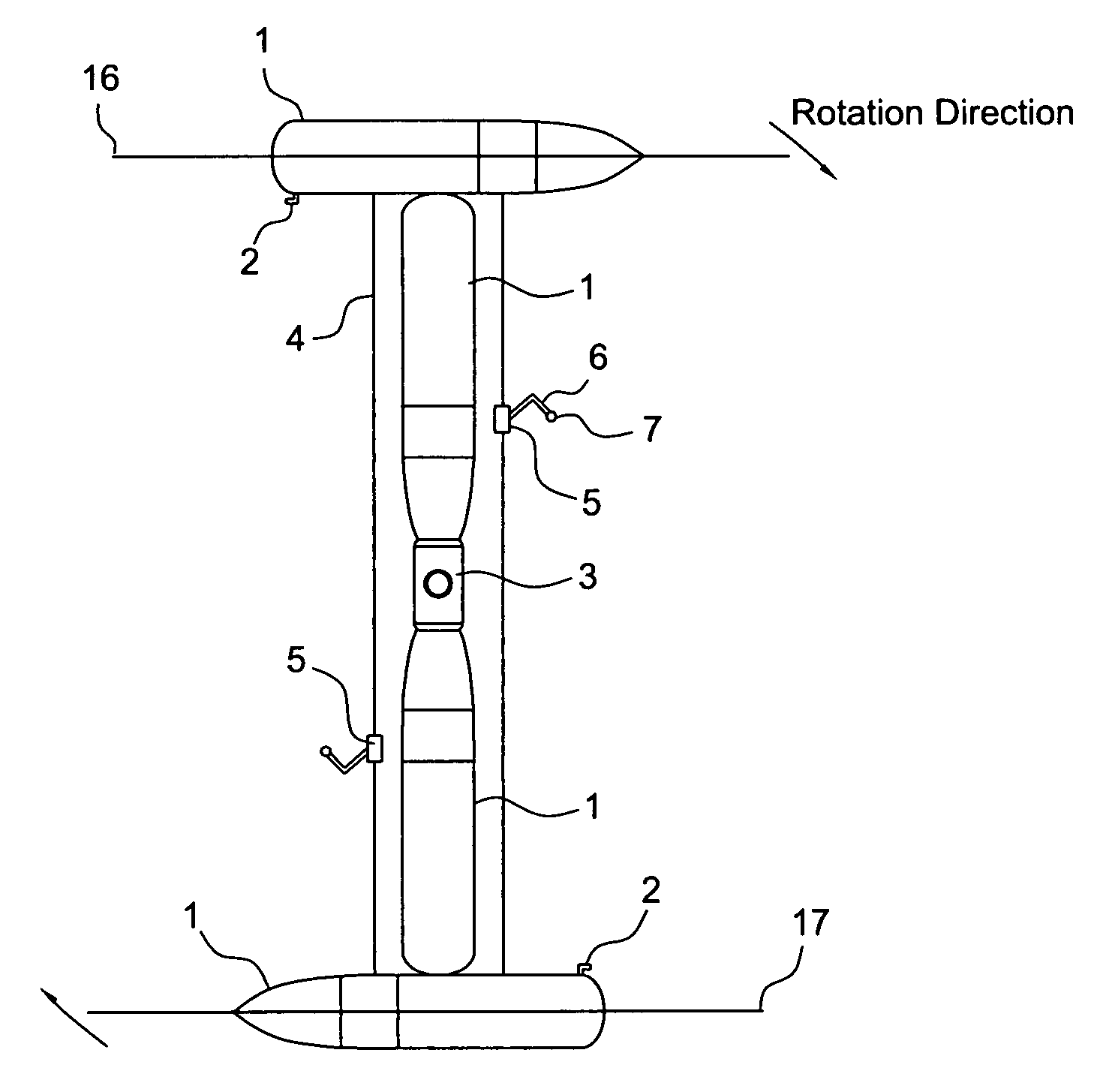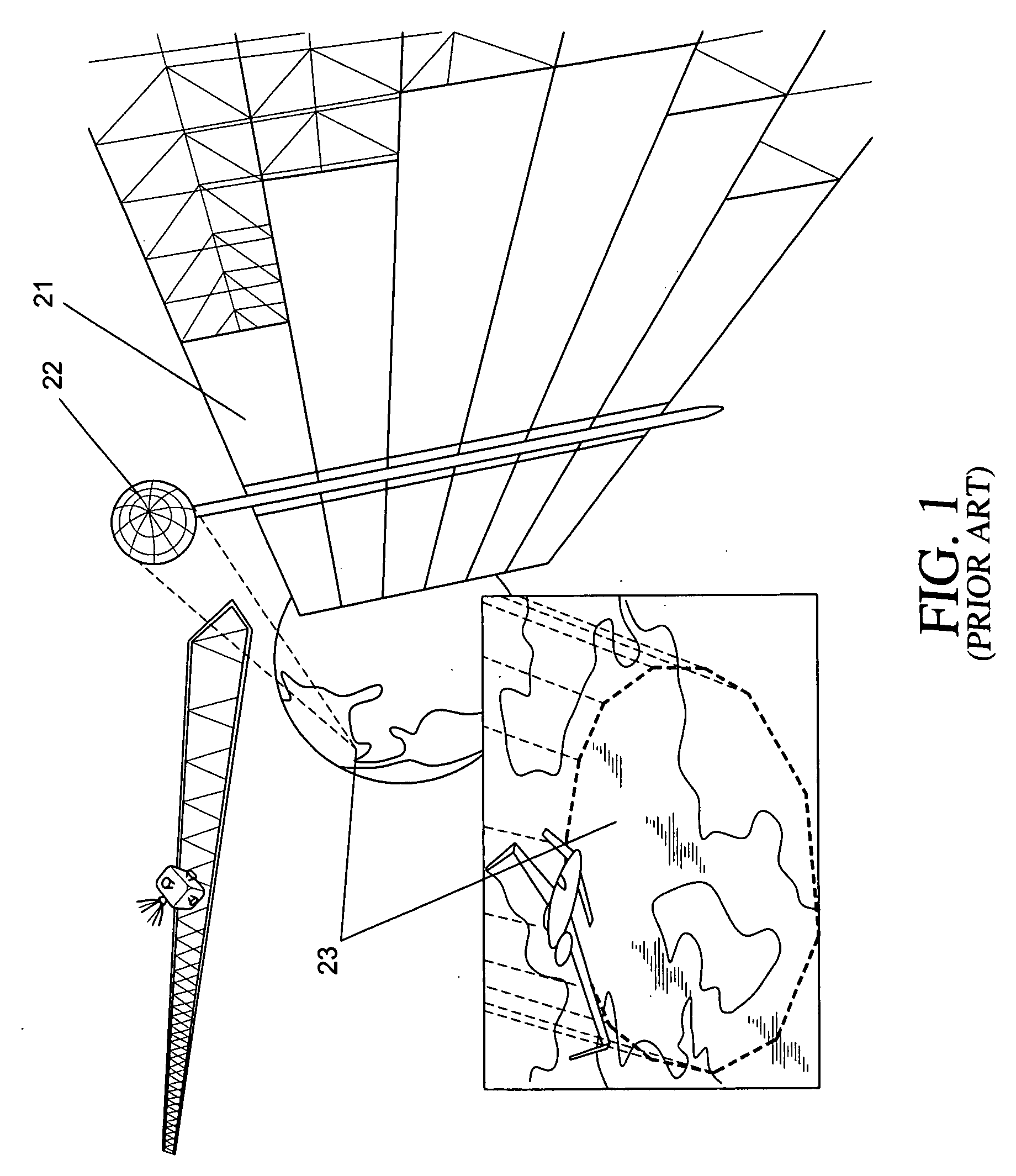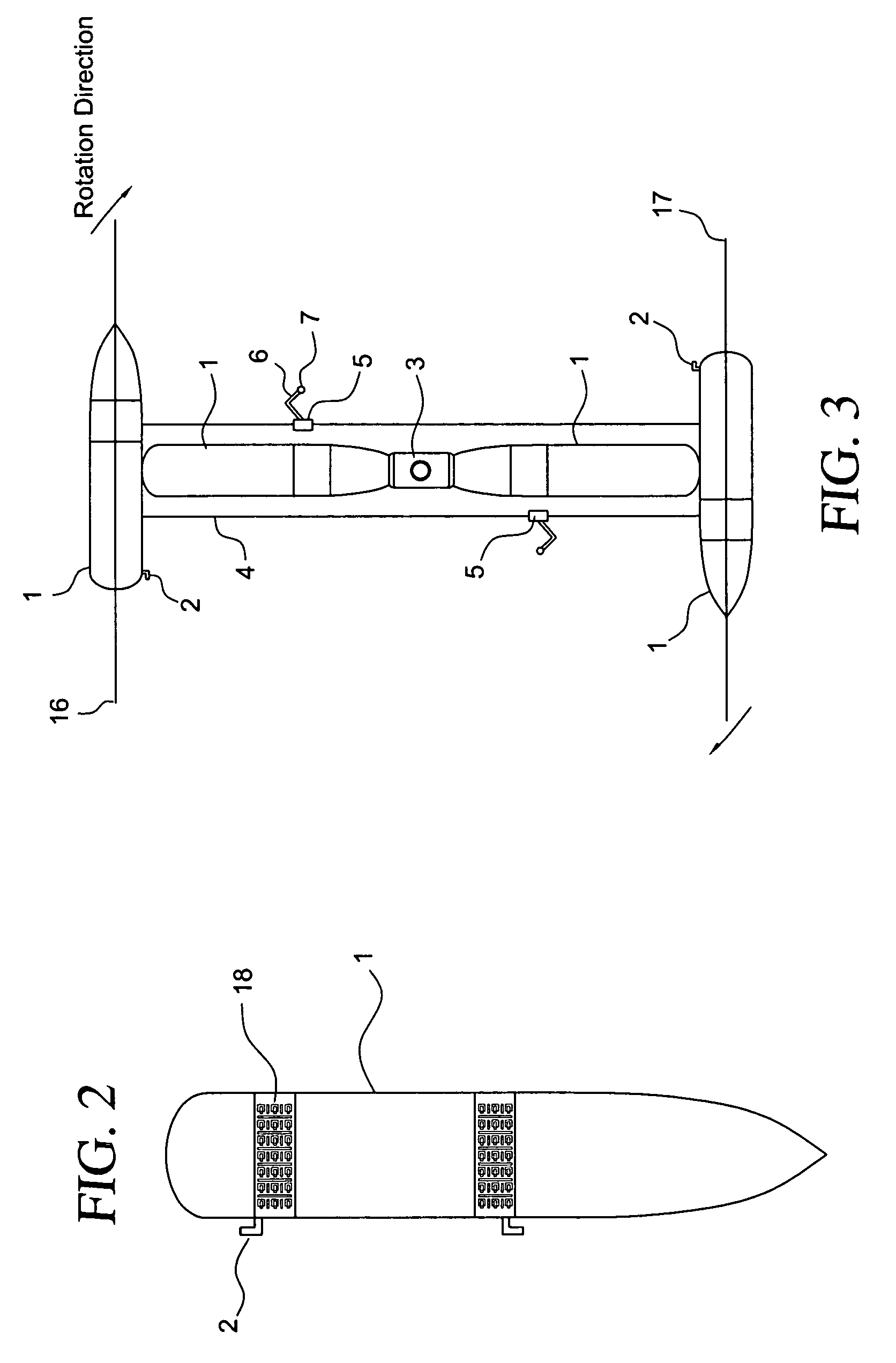Method for manufacturing a solar module in orbit
a manufacturing method and solar module technology, applied in the direction of cosmonautic vehicles, transportation and packaging, cosmonautic crew accommodation, etc., can solve the problems of no economic competitiveness, no method proved economically feasible, and cost of launching materials
- Summary
- Abstract
- Description
- Claims
- Application Information
AI Technical Summary
Benefits of technology
Problems solved by technology
Method used
Image
Examples
Embodiment Construction
Creation of the Manufacturing Facility:
[0031]In this preferred embodiment for the current space situation, for the creation of the manufacturing facility, an empty external tank (ET) #1 (FIG. 2) from the Space Shuttle is not discarded upon the Shuttle's launch to the International Space Station (ISS). Instead, the empty external tank (ET) is taken into orbit with the Space Shuttle. About 30 miles short of the International Space Station (ISS), the Shuttle disconnects and undocks from the external tank (ET).
[0032]The external tank (ET) is fitted by the Shuttle Manipulator Arm #37 (a standard part of the Space Shuttle) with a station keeping device, which consists of a girdle of solar power cells #18 (FIG. 2) that connects to an ion engine #2 (FIG. 2). The Shuttle crew opens the cargo bay doors #38 (FIG. 12), and take out a wraparound solar panel with an ion engine #18,2 (FIG. 2), using the Shuttle Manipulator Arm #37 (FIG. 12). With the Shuttle Manipulator Arm #37 (FIG. 12), the Shut...
PUM
| Property | Measurement | Unit |
|---|---|---|
| Gravity | aaaaa | aaaaa |
Abstract
Description
Claims
Application Information
 Login to View More
Login to View More - R&D
- Intellectual Property
- Life Sciences
- Materials
- Tech Scout
- Unparalleled Data Quality
- Higher Quality Content
- 60% Fewer Hallucinations
Browse by: Latest US Patents, China's latest patents, Technical Efficacy Thesaurus, Application Domain, Technology Topic, Popular Technical Reports.
© 2025 PatSnap. All rights reserved.Legal|Privacy policy|Modern Slavery Act Transparency Statement|Sitemap|About US| Contact US: help@patsnap.com



